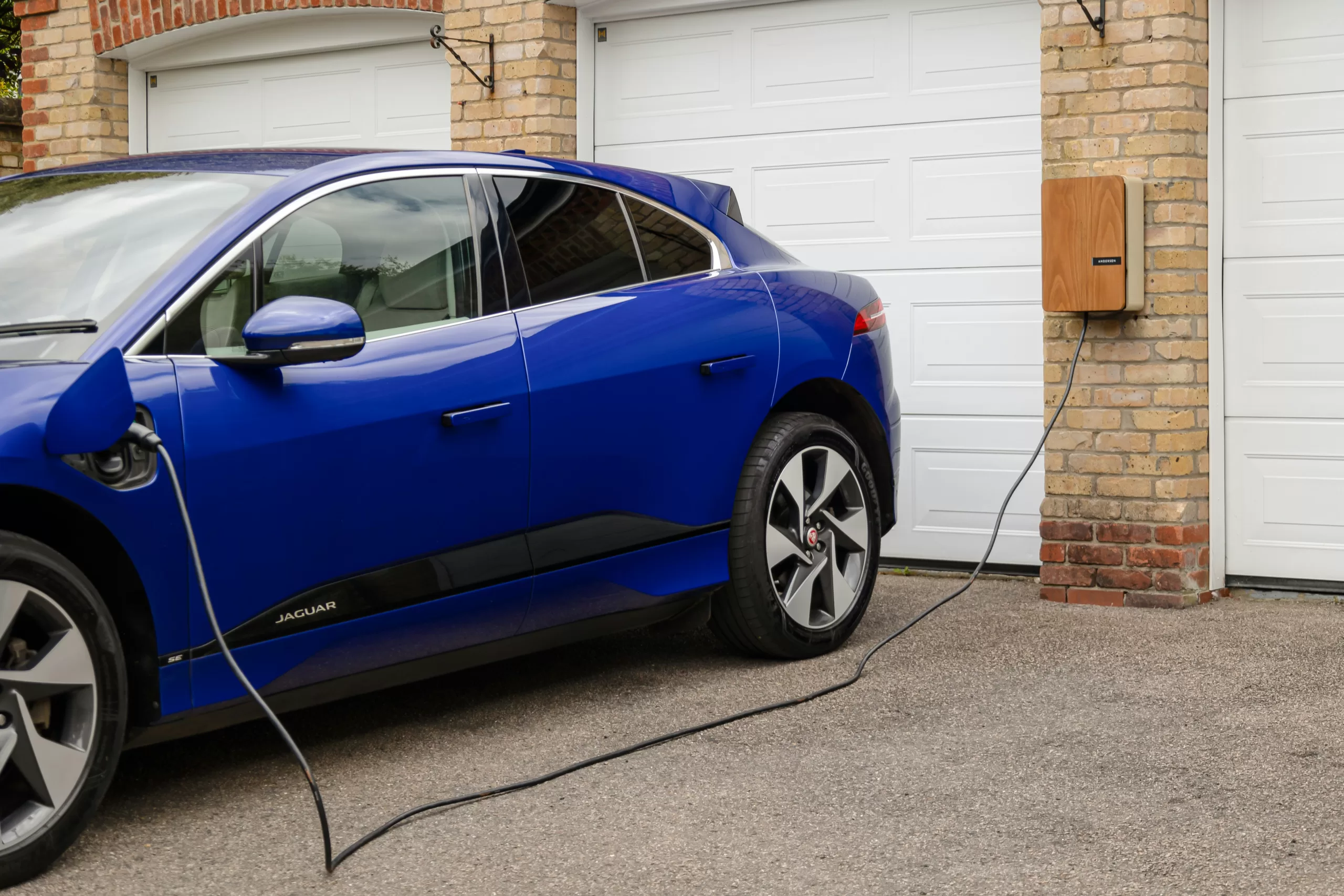As electric vehicles (EVs) gain popularity, engineers and manufacturers face the challenge of mitigating electromagnetic interference (EMI) within these complex systems. EMI can disrupt the operation of sensitive electronic components, affecting vehicle safety, performance, and user experience. Understanding EMI sources in EVs and how Sakura India RFI/EMI filters can help resolve these issues is essential for creating efficient and reliable electric vehicles.
Sources of EMI in EVs
Electric vehicles have unique EMI challenges compared to traditional internal combustion engine (ICE) vehicles. EVs rely heavily on high-power electronic systems for propulsion, battery management, and charging. These systems introduce new EMI sources, often in the form of high-frequency electromagnetic waves, that can interfere with various EV components.
- Electric Motors: EVs rely on high-power motors for propulsion, which operate at high frequencies and switch currents rapidly. These characteristics make electric motors a significant source of EMI. The high-frequency switching in motor drives generates harmonic currents, which can radiate electromagnetic waves, causing interference with other vehicle components.
- Power Electronics: DC-DC converters, inverters, and onboard chargers are essential to the functioning of EVs but are also prime sources of EMI. These devices convert electrical energy between the battery, motor, and auxiliary systems, and the switching frequencies of these components create high-frequency signals that can interfere with nearby electronics.
- Battery Management Systems (BMS): The BMS in an EV monitors and manages the battery cells’ voltage, temperature, and charging status, making it a critical component. However, as BMS units operate at high voltages and monitor currents, they may also emit unwanted EMI, potentially affecting the accuracy of sensor readings and other crucial data.
- Communication Systems: Modern EVs rely on numerous wireless communication systems such as GPS, Bluetooth, Wi-Fi, and vehicle-to-everything (V2X) networks. EMI from other EV components can disrupt these signals, impacting connectivity and safety-related communications.
- Charging Systems: EV charging systems, especially in fast chargers, are high-power devices that can introduce significant EMI due to the large current transfers between the charging station and the vehicle. Without adequate EMI shielding, charging systems can emit interference, affecting nearby electronics and even neighboring vehicles.
The Impact of EMI on EV Performance and Safety
Uncontrolled EMI in EVs can have far-reaching effects on performance, safety, and reliability:
- Disrupted Sensors and Instrumentation: EMI can lead to inaccurate readings from sensors such as speed, position, temperature, and battery status, which can compromise safety-critical decisions.
- Reduced Communication Reliability: Wireless communication systems may experience signal degradation, affecting navigation, telematics, and real-time traffic data, which are essential for modern EV operation.
- Decreased Component Lifespan: Persistent exposure to EMI can cause wear and failure in sensitive electronic components over time, potentially increasing the need for costly repairs and replacements.
- Increased Risk of Regulatory Non-Compliance: Regulatory bodies enforce strict standards for EMI emissions in vehicles. Excessive EMI can prevent an EV from meeting these standards, delaying market entry and potentially requiring costly design modifications.
How Sakura India RFI/EMI Filters Address EMI Challenges in EVs
Sakura India RFI/EMI filters offer practical solutions to manage EMI in EVs, supporting compliance with EMI regulations and enhancing the safety and performance of electric vehicles. Here’s how they address common sources of EMI in EV systems:
- Advanced Filter Designs: Sakura India RFI/EMI filters utilize advanced filtering techniques to suppress high-frequency noise generated by power electronics and electric motors. They are designed to reduce conducted and radiated EMI, keeping it within acceptable limits and preventing interference with sensitive vehicle electronics.
- Customized Filter Solutions: Understanding that EV designs vary significantly, Sakura India offers customized RFI/EMI filters tailored to specific EV applications. This flexibility allows automotive engineers to implement optimal filter designs for different components like inverters, chargers, or the BMS, ensuring effective EMI mitigation without compromising system efficiency.
- Compact and High-Efficiency Filters: Space and weight are critical considerations in EV design. Sakura India filters are engineered to be compact and lightweight while maintaining high performance. This makes them ideal for integration into EVs, as they can be placed close to EMI sources without taking up valuable space or adding excessive weight.
- High Power Handling and Durability: EV systems operate at high power levels, especially in components like the motor and charging system. Sakura India RFI/EMI filters are designed to withstand high currents and voltages, ensuring durability and long-term reliability. These filters help prevent EMI-induced degradation of components, contributing to a longer EV lifespan.
- Compliance with EMI Standards: Sakura India’s RFI/EMI filters are engineered to comply with global automotive EMI standards, helping EV manufacturers meet regulatory requirements more efficiently. By ensuring compliance, these filters minimize the risk of regulatory delays and support smooth market entry for new EV models.
Conclusion
In the rapidly evolving world of electric vehicles, managing EMI is critical to ensuring safe, reliable, and high-performing EVs. Sakura India RFI/EMI filters offer practical, efficient, and customizable solutions for addressing EMI challenges specific to electric vehicles. By incorporating these filters into EV systems, manufacturers can reduce EMI emissions, enhance component durability, improve vehicle safety, and facilitate compliance with regulatory standards. For EV manufacturers aiming to build a future-proof, market-ready electric vehicle, Sakura India RFI/EMI filters are an indispensable asset in achieving these goals.





I write a comment whenever I like a artile on a site or if I
have something to valuable to contribute to the discussion. Usually it’s
a result of the fire communicated in the article I read.
And after thks article Managing EMI in Electric Vehicles:
How Sakura India RFI/EMI Filters Enhance Performance and Safety |Sakura India.
I was excited enough to drop a commenta response
😉 I do have a couple of questions for you if it’s okay.
Could it be just me or does it look like a few of these responses look liuke coming from brain dead visitors?
😛 And, if you are posting on additional places, I would like to keep
uup with anything new you have to post. Could you make a list
every one of all your community pages like your Facebook page, twitter feed, or linkedin profile? https://evolution.org.ua/
Matt Michael D’Agati serves as the proprietor of RW, a renewable energy Firm in Massachusetts.
A couple of many years ago, embarking on an adventurous journey, Matthew D’Agati delved into the realm of solar, and additionally within a time period started effectively selling significant amounts of power, predominately as part of the business sector, collaborating with developers of solar farms and local businesses in the “planning” of their particular tasks.
Continuous media among the firm, directed Matt to enlist in a surrounding startup 2 period of time prior, and in a brief period, he assumed the role of their CSO, in charge of all business and endeavor progress, in addition to being available small section ownership.
Thru strategic joint ventures and sheer move mentality, Matthew D’Agati brought that company from a marginal beginning-year earnings to more than a 210% maximize in total money by yr two. On that premise, Renewables Worldwide’s (RW), an expert-closely-held company, was produced with missionary work of giving you renewable electric remedies for a more intelligent and more eco- friendly future.
Much really, understanding there is an untapped market in the market place and a better way to get successes, RW is one of a handful of firms in the states to highlight on consumer obtain, specializing in both financial and personal solar powered town off-take. The perspective is to generate a sales commercial infrastructure on a community-based, regional, national level, offering various sustainable energy goods in to the of RW.
This enthusiasm in each alternative sector moves on to agitate and drive Matthew in proceeding his solicit to work with companies that publish the alike of offering you green fuel cures for a even more ecological outlook. Matthew has that in organization from Hesser College.
[url=https://www.pinterest.com/pin/matthew-michael-dagati–1145955067655431844/]Factors why solar incentives within Massachusetts make sense elucidated by Matthew D’Agati.[/url]
[url=https://slerpee.com/edit/5C8WVHviTK89qXgAS1QCqw]That Eco-considerate Impressions of Fossil Fuels vs. Carbon-neutral Sources by Matthew D’Agati[/url] 41671af
Another essential reason to change to solar power may be the cost benefits it offers. Solar energy panels can handle generating electricity for businesses, reducing or eliminating the necessity for traditional sources of energy. This will bring about significant savings on energy bills, particularly in areas with a high energy costs. Furthermore, there are many government incentives and tax credits accessible to companies that adopt solar power, making it much more cost-effective and affordable.
The technology behind solar technology is relatively simple, yet highly effective. Solar panel systems are made up of photovoltaic (PV) cells, which convert sunlight into electricity. This electricity may then be stored in batteries or fed straight into the electrical grid, with respect to the specific system design. So that you can maximize some great benefits of solar power, it’s important to design a custom system this is certainly tailored to your unique energy needs and requirements. This can make certain you have the proper components in position, like the appropriate quantity of solar power panels additionally the right types of batteries, to maximise your energy efficiency and value savings.
[url=https://groups.wharton.upenn.edu/filmm/officers/]Assessing solar farms expenses via Matthew D’Agati.[/url]
[url=https://stylish-furniture.co.uk/product_details/index/200]Solar Energy in the Farming Sector: Applications and Advantages[/url] 3e97741